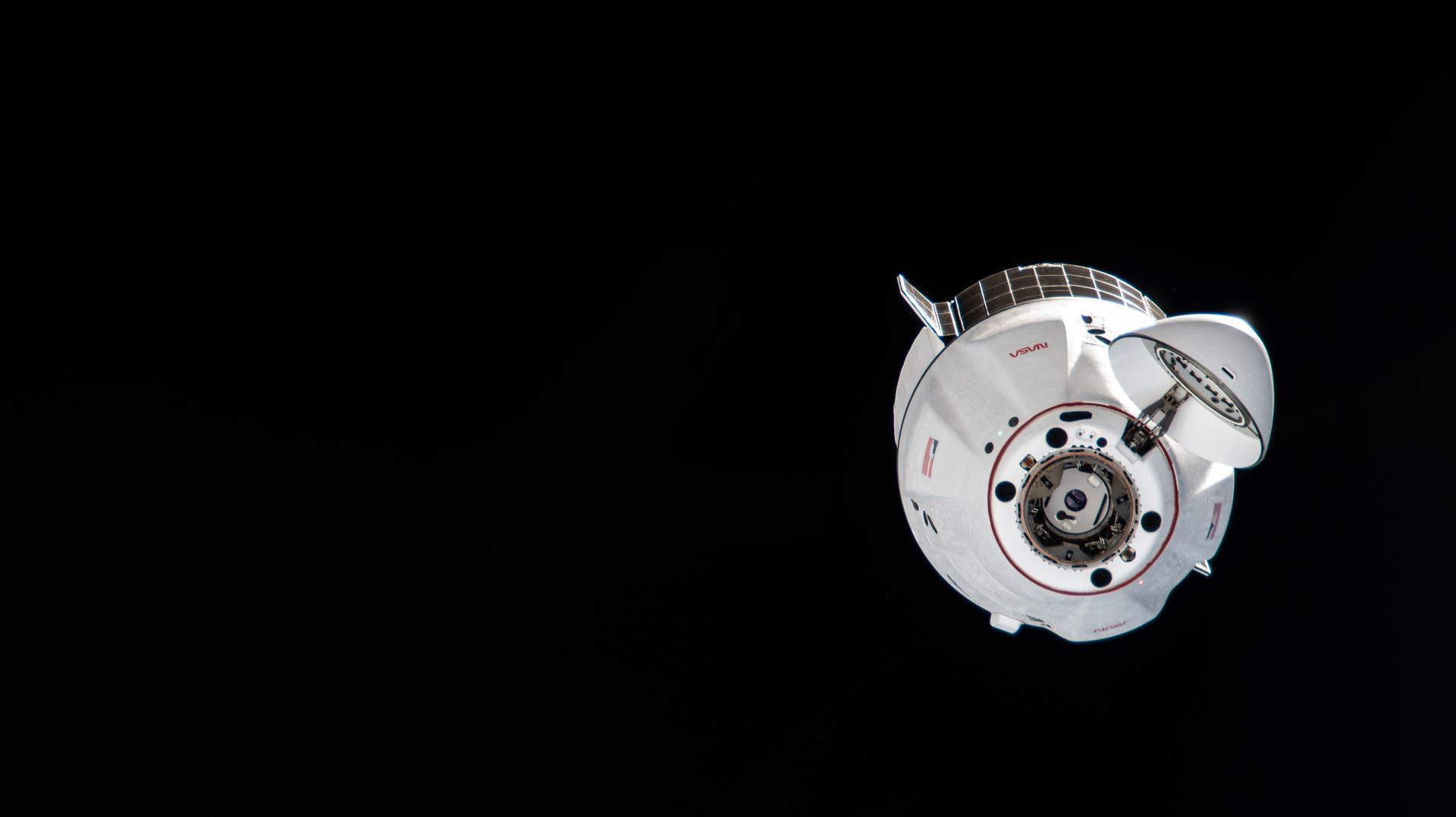Dragon Undocking Adjusted to Friday as Space Science Continues
A SpaceX Dragon cargo spacecraft will wait one more day before departing the International Space Station as mission managers monitor weather conditions at its splashdown site off the coast of California. Meanwhile, the Expedition 73 crew eased its cargo loading activities and focused on ongoing microgravity research to improve health on and off the Earth.
Dragon will extend its stay at the orbital lab by 24 hours and shift its undocking time to 12:05 p.m. EDT on Friday. Support personnel are waiting for visibility conditions to improve at the splashdown site in order to safely retrieve Dragon after its parachute-assisted splashdown in the waters near California. NASA+ will begin is undocking coverage at 11:45 a.m.
NASA Flight Engineers Anne McClain, Nichole Ayers, and Jonny Kim along with station Commander Takuya Onishi from JAXA (Japan Aerospace Exploration Agency) continued loading Dragon with completed science experiments, time-critical research samples, and lab hardware before closing its hatch. Kim also installed spacecraft monitoring hardware in the cupola and Tranquility module that he will use when he supervises Dragon’s departure on Friday.
At the end of their shift on Thursday, Kim and McClain partnered together for a look at how the retina is affected by microgravity for the CIPHER suite of 14 human research investigations. The duo first set up optical hardware for imaging the retina’s response to light. Kim then attached sensors around his eyes and forehead measuring his retinas’ light sensitivity. Afterward, Kim peered into medical imaging gear with assistance from McClain as ground doctors observed the back of his eye in real time to understand potential space-caused vision issues.
Ayers opened up the Kibo laboratory module’s Life Science Glovebox and installed a 3D imaging microscope also known as Extant Life Volumetric Imaging System, or ELVIS. She then tested viewing bacteria samples in the specialized microscope that could be used to monitor water quality and detect infectious organisms on spacecraft.
Roscosmos cosmonaut Alexey Zubritsky wrapped up a 24-hour session monitoring his heart activity and blood pressure for a study monitoring a crew member’s cardiovascular system. Next, he assisted fellow cosmonaut Kirill Peskov as he pedaled on an exercise cycle for a regular physical fitness exam. Peskov then spent the rest of his day on computer networking and orbital plumbing maintenance. Veteran Flight Engineer Sergey Ryzhikov deactivated ultraviolet atmospheric observation hardware then serviced the Elektron oxygen generator.
Learn more about station activities by following the space station blog, @space_station and @ISS_Research on X, as well as the ISS Facebook and ISS Instagram accounts.
Get the latest from NASA delivered every week. Subscribe here.



























